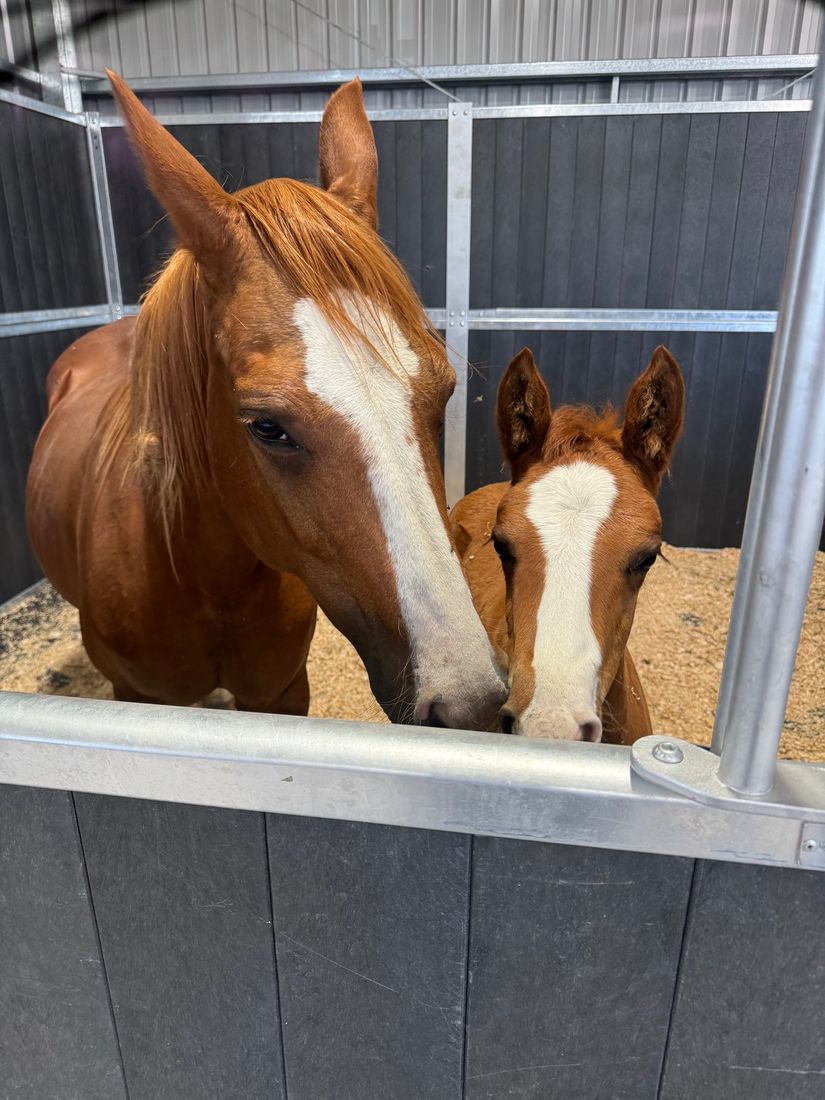What is colostrum?
Colostrum is a thick, highly nutritious portion of milk that is produced during late pregnancy and early lactation. It contains immunoglobulins with are vital for the foals immune system in the early stages of life along with high levels of fat, protein, vitamins and sugars to give them a kick-start.
Why do foals need to have colostrum?
Unlike some species, foals do not receive any passive immunity from their mothers through the placenta during gestation and instead require colostrum after birth. Without colostrum and the maternal antibodies it contains, foals are very prone to simple infections that can often become life threatening. When successful, the maternal antibodies will protect foals for the first 6-12 weeks of life, until their own immune system is developed.
How is colostrum absorbed by the foal?
In an ideal world, foals should be up and suckling within 2hrs of birth. This is important because they are only able to absorb the large proteins known as immunoglobulins that are in colostrum for the first 24 hours of life with the best absorption occurring in the first 6-8 hours of life. After 24 hours the gut starts to shut down and they are no longer able to absorb these proteins, rendering colostrum after this time useless for increasing their immunity levels.
What is an IgG test and what is involved?
It is recommended that all newborn foals are immunoglobulin (IgG) tested in the first 12-24 hours of life to ensure that they have the required amount of immunoglobulins to have a functional immune system moving forward. Some reasons for inadequate immunoglobulin levels include; prolonged labour, foals that have maladjustment syndrome (dummy foals), musculoskeletal issues that prevent foals suckling readily, mismothering, mares that have let their colostrum down prior to foaling, low quality colostrum or mares that don’t produce enough colostrum. This is known as failure of passive transfer.
What happens if there is Failure of Passive Transfer (FPT)?
If a foal is found to have inadequate immunoglobulin (IgG) levels, there are a couple of options depending on how old the foal is. If it is less than 24 hours old and has been having trouble suckling, the mares colostrum can be tested for its quality and the foal can be fed the colostrum via a stomach tube to ensure it receives enough in the critical time period. If the foal is over 24 hours old, it will require a plasma transfusion which will provide it with immunoglobulins. In some cases, a second plasma transfusion is required so it is always recommended that the IgG be tested again 24 hours after the initial transfusion.
If you have any questions about your mare and foal or need to book an IgG test then give our helpful team a call on 07 4982 2552.




